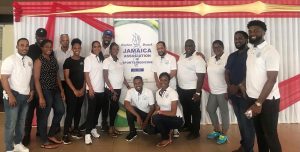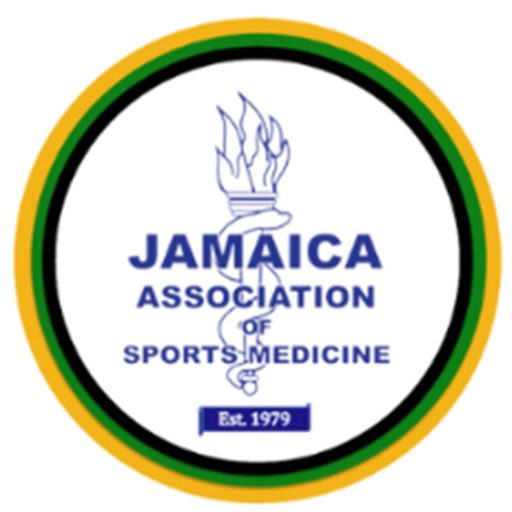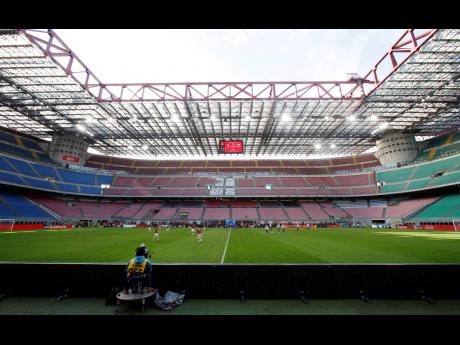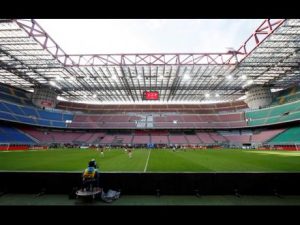Jamaica Association of Sports Medicine (JASM) Inaugural Periodic Health Evaluation Fair September 3, 2022 Montego Bay Community College
The Jamaica Association of Sports Medicine (JASM), is a multi-disciplinary body of practitioners
whose primary objective is to provide care to all persons who participate in sports. With over 40
years of providing service to all levels of athletes across the island, our members have distinguished
themselves through training and experience. As part of our outreach mandate, we decided to
organise a series of health fairs across the island with the main aim being to perform Pre-
Participation or Periodic Health Evaluations (PPEs/PHEs). These evaluations seek to identify athletes
at risk for serious or life-threatening medical events, as well as, physical injuries prior to their
participation in sporting activities. It was decided that our high school athletes, who are often times
underserved with regards to early medical and physical therapy intervention, were the best group to
engage for this new initiative.
The first event in the series was held at the Montego Bay Community College Auditorium on
Saturday, September 3, 2022. There were a total of 50 participants from 4 institutions, including
Cornwall College, Green Island High, Muschette High and Montego Bay Community College. The
day’s activities, co-ordinated by the Western Branch of the JASM and facilitated by members of the
JASM from across Jamaica, included musculoskeletal, medical and heart evaluations. The
musculoskeletal assessments, which included strength, joint range of motion and functional
movements – jumps, squats, push-ups and sit-ups were performed by our member physiotherapists,
while some of our medical doctors were on hand to basic medical assessments and echocardiograms
(ECGs) and offer any relevant advice and recommendations. Referrals for any further or follow-up
management were also made on the day. The athlete’s vital signs, height and weight were recorded
and information relevant to the safe practice of sports was disseminated throughout the day.
These healthcare services provided to the athletes were done free of cost to the students by our
association, along with the help of our sponsor, the Milo Western Relays.
By all accounts the day was a success and the coaches really appreciated our efforts as some were
unable to afford to have these important and timely assessments done for their athletes. Two more
fairs are being planned for 2023, one in the Middlesex County and one for Surrey and we hope to
make these fairs annual events as we seek to increase our reach and visibility to the sporting
community in Jamaica.
One of the coaches assisting his athletes with registration

Vitals signs being measured
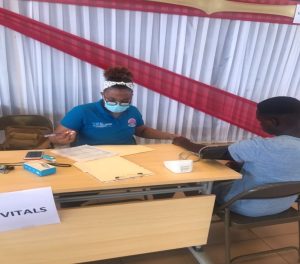
Athlete’s height being recorded
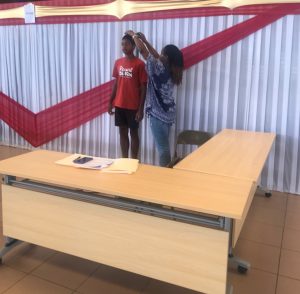
Manual muscle testing for the upper limbs
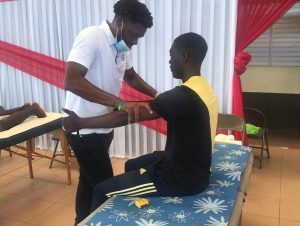
Series of functional tests being carried out, including single-leg squat, push-ups and sit-ups

One of our medical doctors setting up an athlete for an ECG
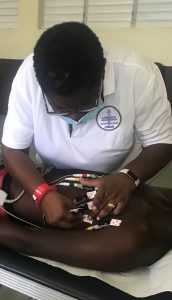
Medical assessments by some of our medical doctors on hand
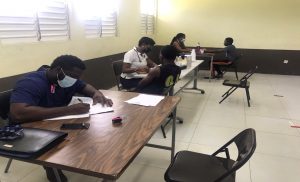
Some of our participants enjoying receiving their refreshments after they completed their evaluations

Some of the volunteers on hand for the event
